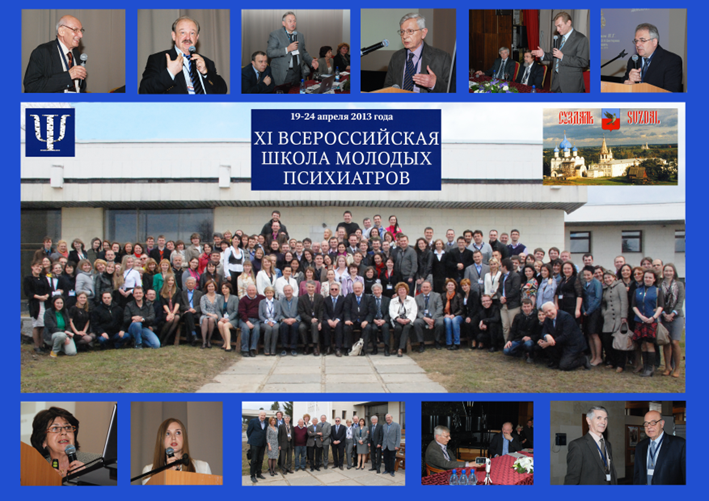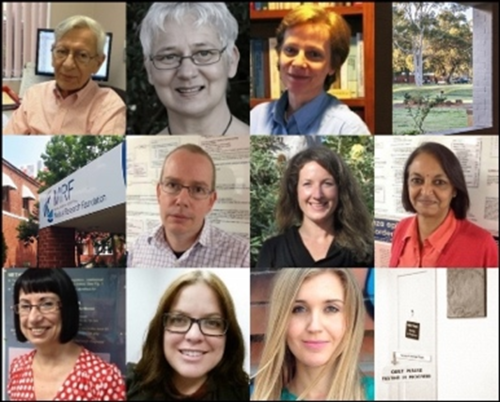Tribute for Professor Assen Jablensky, “a beautiful mind and the kindest of hearts”
A CONTINUING DIALOGUE WITH ASSEN

My dear Mentor, darling teacher, Assen…
Even when there is not enough light in minds or peace in hearts, I send you this message from Russia.
Will never forget the precious lessons we learnt from you – your “beautiful mind and the kindest of hearts” (gratitude to Luba, kids, and grandchildren for these precise words), genius, and angelic personality make you a rare diamond of brilliance in world psychiatry and a homo moralis in life. You live still in the memory of the many people whose lives you touched. You shared so much with many people around the world, so your memory is enshrined in the hearts of many.
Communication with Assen has been always a sort of miracle. A representative of “intelligentsia”, always ready to assist in any trouble, sharing ideas, knowledge, and wisdom, ever inspiring to follow his example. He also found a direction to solve the most complicated of tasks, and the correctness of his vision becomes clearer with time.
Assen’s beloved psychologist and linguist, Lev Vygotsky, believed that cognitive development was predisposed by sociocultural context, and that the community played a central role in the process of “making meaning.” Embedded in the Vygotskian view, Assen followed the principle of scaffolding, challenging his students with a vision extending just beyond their present horizon, and encouraging them to take the next step in understanding in making meaning through inner and external conversation.
Assen will always remain the beacon and mentor who is “making meaning”, playing the role of the “more knowledgeable other” (Vygotsky) for his followers, but always remaining an equal, a guide who creates a special sociocultural context for the psychiatric community and any scientist who had the fortune to meet him in life.
Assen, a multilingual, always found “le mot juste” in his communications. He sent me emails with instructions to use the Russian language keyboard for his Australian computer, and jotted down his notes on keyboard use, which I still keep with me. When I joined the CCRN team and was working on the adjacent floor to his office in Perth, his every email concluded with his kind words in Cyrillic script, “Сердечный привет, Асен» (With heartiest greetings, Assen). I have archived every single email from him.
With guidance from Assen, Johanna, Melany and I studied Action Fluency (Action versus Mental State verbs) in patients with schizophrenia spectrum disorders, using the WAFSS dataset created by the CCRN team. Assen was a thought leader who balanced the mental state and action verbs of the CCRN team, and whose actions always followed his words.
I first met Assen at the 2013 Early Career Psychiatrists School event in the ancient city of Suzdal, Russia. The late Prof. Petr Morozov had invited Assen (they were working together at WHO in Geneva) to deliver his famous keynote lectures. This was for me a sign of destiny, as I took in his deep ideas on thought, language, and communication disorders in schizophrenia. I dared to ask several questions, and jostled with other young Fellows and likewise senior professors for a position close to him in the group photograph. Frankly speaking, I was sitting in the air at the bench close to Assen, because of the tumult of people and the energy of the Fellows. As I write, I am gazing at the photograph.
Upon arrival in Perth, when he guided me in applying for a Go8 grant for European fellows in UWA I was expecting my second baby, and I soon returned a year later with one year old Max. As a Russian used to a quite strict and heirarchiсal academic environment, I feared that Assen and his team might not support me in this fragile state. Assen was extremely supportive and kind. At a lunch meeting with Assen and his beloved wife Luba, we exchanged Russian language books about Vygostky and Luria, and a book on semantic categorization of English verbs, by Stanford Professor Beth Levin. Assen often inquired about my well-being, invited me for walks, sent CCRN booklets to me in Russia, and even details of my life like finding living quarters and a babysitter for my younger son Max during my stay in Perth, in addition to our shared academic matters.
While in Perth (and remotely from Russia) we managed Assen’s Diagnostic Interview for Psychoses and the approbation of its Russian language in seven regions of the country, organized DIP training for young doctors. Assen’s inspirational speech on this theme is preserved at our web-site of the International Centre for Education and Research in Neuropsychiatry at my local university and Russian Society of Psychiatrists (https://icern.org/about/media-about-us/diagnostic-interview-for-psychoses-training-program-collaboration-with-the-university-of-western-australia-professor-assen-jablensky/; https://icern.org/about/media-about-us/the-diary-of-psychiatrist-interview-with-prof-assen-jablensky/; https://psychiatr.ru/news/480; https://psychiatr.ru/news/111 & many other links).
Assen had already retired when I became director of this university department, and I always remember his generous words: “Unreservedly, and without any conditions, I highly support and will always support your centre” [Конечно, Даша, я всячески, всегда и очень поддерживаю твой центр и сделаю, что нужно]. With that blessing from Assen, I try to keep alive Assen’s lesson.
Meeting Assen by chance one Saturday at the Royal Perth Hospital, I asked him if he also worked during weekends. He told me that he often came to work on Saturdays quiet, that he loved his job and that work gave him so much joy, that work enriched his life. I cannot explain how, but I feel that his love for others helped him to manage his life-work balance in his busy schedule, always taking care about his family. I note his wonderful wife Luba, of whom he was so proud, who is herself a prominent scientist in the genetics of pediatric neurology, who had started her studies in linguistics. He often spoke of Luba, their daughter in London, and their son, a pilot, and all extended family, and their travels to Sofia. I remember particularly his recommendation to Russian researchers to publish more in the English language, so that our ideas would reach an international audience.
When I left Australia after my last research visit to Perth, we hugged, with tears in our eyes. “I hope we will meet again”.
I embrace this hope.
Сердечный привет,
Dasha
Daria Smirnova,
International Centre for Education and Research in Neuropsychiatry (ICERN) Director
July’ 2024, Samara, Russia











